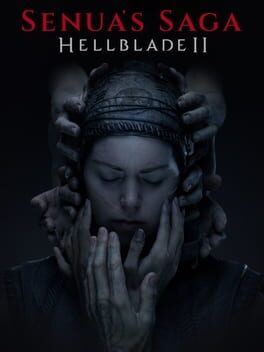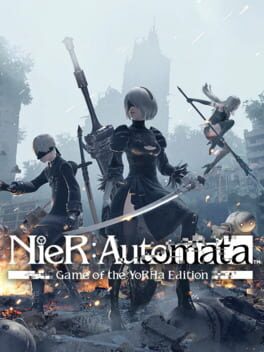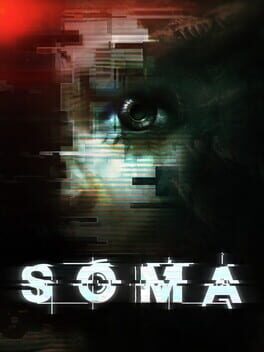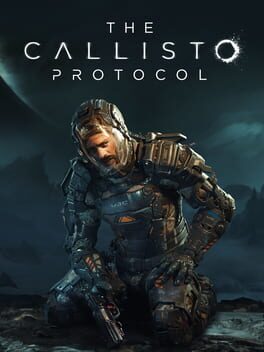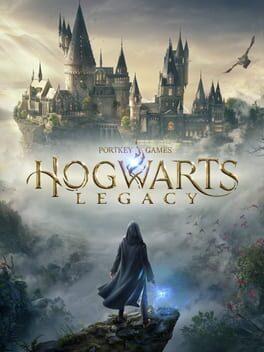Diddley
BACKER
A cinematic achievement reminiscent of a Robert Eggers film, with some of the best visuals, sound design, and acting in the medium. The story was not quite as impactful as Senua's Sacrifice, despite still being very well written, but in every other regard it is a marked improvement over the first. Ninja Theory has completely leaned into the arthouse cinematic experience the first strived to be, cutting out the lackluster puzzles and other “gamification” obligated of them to craft this experience.
Despite initially being put off by its many issues—frustrating enemy placements, disconnected areas, and the mechanics of soul memory and ADP—Dark Souls 2 has struck out a very core, emotional experience. The world of Dark Souls 2, with all its rough edges, feels deeply human. No higher purpose exists here, but merely the hope to break the chains of a curse. Majula, with its melancholy beauty, stands as a beacon of these themes—a place where despair and hope mingle like the fading light of dusk, where the legends of old seem but distant whispers on the wind and those few companions seek out a nonexistent solace. In these dialogues, fleeting as though hollowed, we see ourselves, our own desperations. It's about the push to find a place, a moment of peace, in a world that feels perpetually against you.
2020
My initial dissatisfaction with this game has gradually transformed into an appreciation for its qualities, establishing it as a commendable title within its genre, albeit not without significant flaws that prevent it from reaching the lofty heights achieved by masterpieces such as Disco Elysium. I won't spend much time on its strengths --- this game has received an immense deal of praise already, but to be succinct: the game impresses with an outstanding soundtrack, the innovative dynamics of emergent gameplay, and spectacular set-pieces, all underpinned by consistently strong acting performances. Nevertheless, the game's approach to fail-forward mechanics does not fully meet expectations, with instances where players can be entirely excluded from content or, more critically, key narrative characters, due to a failure in a single dice-roll. Although these occurrences are not widespread, they are frequent enough to raise concerns.
Possibly my largest issue with this game lies in its narrative, a critical component of a crpg; Baldur's Gate 3 struggles with erratic pacing and dialogue that often feels exaggerated and almost caricature-like, which stands in stark contrast to the game's generally self-serious tone. This issue is exacerbated by a narrative that, disappointingly, offers little depth or insight, featuring characters that are overly dramatic and lacking in true depth (while villains often feel nothing more than afterthoughts). Moreover, the narrative often penalizes players for engaging with its supposedly key elements, and the portrayal of characters leans heavily on clichés and well-worn tropes.
Despite the game generally offering a wide array of choices to the player, receiving frequent praise for its player agency (of which there is certainly a lot), I frequently found that the available options did not align with what I would genuinely want my character to express, detracting from the immersion. This seemingly decreased as the story progressed, however, but it was quite jarring initially.
While Baldur's Gate 3 has its moments of brilliance, these issues ultimately prevent it from achieving the distinction of being a genre-defining work, as a solid crpg and certainly Larian's best, but nowhere near the pinnacle of the genre.
Possibly my largest issue with this game lies in its narrative, a critical component of a crpg; Baldur's Gate 3 struggles with erratic pacing and dialogue that often feels exaggerated and almost caricature-like, which stands in stark contrast to the game's generally self-serious tone. This issue is exacerbated by a narrative that, disappointingly, offers little depth or insight, featuring characters that are overly dramatic and lacking in true depth (while villains often feel nothing more than afterthoughts). Moreover, the narrative often penalizes players for engaging with its supposedly key elements, and the portrayal of characters leans heavily on clichés and well-worn tropes.
Despite the game generally offering a wide array of choices to the player, receiving frequent praise for its player agency (of which there is certainly a lot), I frequently found that the available options did not align with what I would genuinely want my character to express, detracting from the immersion. This seemingly decreased as the story progressed, however, but it was quite jarring initially.
While Baldur's Gate 3 has its moments of brilliance, these issues ultimately prevent it from achieving the distinction of being a genre-defining work, as a solid crpg and certainly Larian's best, but nowhere near the pinnacle of the genre.
2023
2023
2023
Within the first 2 hours of Final Fantasy 16's campaign, the tone and pace is set to that of Game of Thrones: that of a dark fantasy world, full of political strife and battles of unprecedented scale. Firing on all cylinders, this game is nothing short of incredible. The epic orchestral soundtrack and set-pieces make boss-fights some of the most impressive and cinematic in the gaming industry. The narrative is dark and mature, with impressive voice acting, while combat is phenomenal character action, in similar fashion to that of Devil May Cry, Bayonetta, and Nier: Automata. Unfortunately, when it is not at these highs, it sinks into impressively low lows. After slaying quintessential god-like beings, you will be tasked with hours of mediocre fetch quests, despite leading the war against a world-threatening blight. As the plot progresses, it sinks further and further into the classic final fantasy trope of insanity, losing the political intrigue it had previously set up in place of the strange and unorthodox, with writing quality suffering intensely.This narrative dissonance massively detracts from the game, but the highs are so unbelievably high it still earns its place as a must-play. It truly is like Game of Thrones, for all the flaws that come with it.
NieR: Automata has successfully subverted the many misconceptions myself and many others feel towards it to deliver one of the most profound, emotional pieces of art I have experienced in and outside of the medium of gaming. In doing so, Automata tells a humanistic tale disguised as a nihilistic tale a la Neon Genesis: Evangelion, all in Yoko Taro's self-described goal of allowing the player to "feel."
Combat is the smooth, flashy character-action combat Platinum Games is beloved for, while the soundtrack supplements the many-layered story to a T in a set of beautifully composed tracks.
Absolute masterpiece.
Combat is the smooth, flashy character-action combat Platinum Games is beloved for, while the soundtrack supplements the many-layered story to a T in a set of beautifully composed tracks.
Absolute masterpiece.
2015
2019
One of the extremely rare games of recent memory that I truly believe warrants the title of "masterpiece." From its poignant and personal soundtrack, to an extremely engrossing story, it captures emotions ranging from terrifying dread to melancholic isolation and adrenaline-pumping awe. It has by far the best exploration I have ever experienced in a video game, while initially frustrating, yet strikingly realistic physics and controls drive home the true complexity of it all. This song is new to me, but I am honored to be a part of it.
Ignoring the outrageous technical issues, The Callisto Protocol has completely failed to live up to expectations. The graphics are beautiful, but the atmosphere and sound design let them down severely. Cheap and repeated jump scares are overused to the extent that they are almost always expected. In my nearly 4 hours of playtime I legitimately cannot think of a single time I felt any sense of dread or fear. That being said, it's still mindless fun, and is one of the few recent high-budget sci-fi horror games, but I would certainly not recommend it.
Upon launching Hellblade, I was immediately in awe of the gorgeous visuals, intriguing atmosphere, and incredible sound design. Senua's mental health struggles are depicted excellently, immersing you into an intense Norse mythological story of this struggling woman. I found the first few puzzle sections to be quite frustrating, and the combat, while flashy and beautiful, definitely lacked depth. That being said, the puzzles picked up immensely, and the music coupled with Senua's desperation made these fight sequences extremely emotionally powerful. I highly recommend this game for anyone looking for a strong narrative experience.
2023
Phenomenal world design, directly drawn from the Harry Potter universe, but everything else falls completely flat. The characters are one-dimensional, without any additional complexity beyond "good" and "evil," and the dialogue is ridiculously childish to the point of lunacy. The main character is your generic self-insert chosen one protagonist, which can be executed fairly well, but isn't in this case. Your status as a "student" is completely inconsistent with the gameplay and power fantasy plot, while there is almost no interaction with fellow students in a realistic way besides them simply praising you as this yet unbeknownst prodigy. Roleplaying elements are "present," but they feel more haphazardly tacked on rather than actually adding anything of meaning (side quests are as generic as they can be, and dialogue choices offer no real choices or complexity). The gameplay is actually fairly well-executed, duels are fun and engaging, but certain fights certainly rely on sponginess, and the UI design is abhorrent (animations are impressively slow, while important gameplay elements are locked behind talents). Performance issues are present, but not unusably so, although it is comical for this to be an issue in a game with character models ripped straight out of 2015. Despite all this, it's definitely not a terrible game, with a very polished open world, beautiful art direction, and complete faithfulness to the Harry Potter lore, but it's by no means an especially great one, offering nothing new or special despite the illustrious Harry Potter skin. As far as licensed games go, this is a fantastic one, and Harry Potter fans will likely love it, but as far as games go in general, I'd find it difficult to recommend, even though I loved this series when I was younger.
